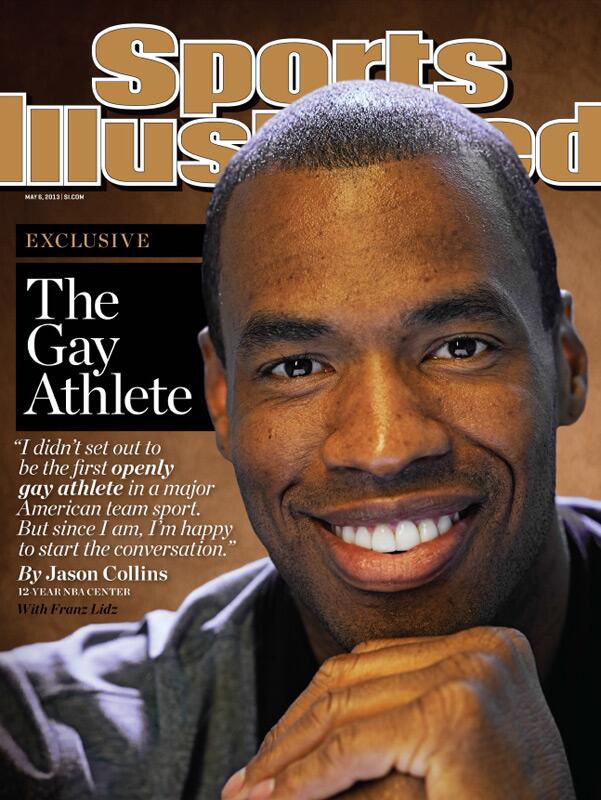At the time, Jason Collins' coming out was seen as a step forward for LGBTQ equality in the NBA. But now, with no NBA team having signed him for the 2013-2014 season, many question whether he serves as a symbol of equality or of the NBA's lack of acceptance.
Collins was regarded as being the first active male professional athlete in a major North American team sport to come out publicly as gay. Former President Bill Clinton praised his coming out as being "an important moment for professional sports and in the history of the LGBT community."
This "important moment" was a potential leap forward for him, the LGBT and the NBA. He gave the NBA a chance to prove itself as an insular community where he could be himself, without fear. He had the opportunity to serve as a visible symbol of equality that would widen the door for other homosexual athletes to be comfortable in the American sports atmosphere.
Many months later, Collins is currently team-less. He is out of the spotlight and his disappearance is now a reminder of how the NBA and other professional sports leagues may not be ready for open homosexual athletes.
Although lauded as "the first active male professional athlete in a major North American team," Collins fails to remain "active," diminishing his progressive effects.
The title for someone who remains active after coming out is still open.
No one can really pinpoint how much being openly homosexual affected Collins' chances at being signed. In the 2012-2013 season, he averaged just 1.1 points per game, 1.6 rebounds per game, 0.3 blocks per game, and 10.1 minutes played per game.
ESPN writer Kevin Arnovitz explains that many NBA team representatives revealed how the media glare from signing Collins isn't worth the distraction, suggesting that "the market for Collins would be bigger if he weren't openly gay." That may or may not be what they are saying.
 Collins refutes the legitimacy of media glare as a reason for not signing him by saying "the media question in this day and age would last a week, maybe two? There are only so many ways to write a story, then it's on to the next situation…my story is not going to last more than a news cycle or two."
Collins refutes the legitimacy of media glare as a reason for not signing him by saying "the media question in this day and age would last a week, maybe two? There are only so many ways to write a story, then it's on to the next situation…my story is not going to last more than a news cycle or two."
Do his unflattering statistics, high contract price of $1.4 million (the veterans' minimum), his age (he is 35 years old) and media glare serve as a scapegoat of the more insidious discrimination? Instead of a symbol of equality, does Collins now serve as a symbol of intolerance in the NBA?
No and No.
Although Collins has fallen short of what he could have symbolized, he is still a major step forward in the LGBTQ community.
Just as controversial art causes us to think progressively, Collins has revamped the discussion on homosexuals in the sports world. He has revealed how the media will react positively when the next active player comes along, as it did when he came out.
Kevin Arnovitz writes "Over the course of our chat [with an NBA coach], which covered topics ranging from theology to how values are instilled in human beings, this coach offered up a prediction: An active NBA player would come out pretty soon. The public reaction to the announcement would be positive. A few high-profile players and coaches would voice overwhelming support for the player, and the media would celebrate the moment."
He took the risk of being the first and both he and the LGBTQ community has benefitted. Collins shows no regret with his decision to come out.
He answers he would rather come out than be in the closet and play another three years of professional basketball. He reflects, "you can't underestimate how good it feels to control your own story, being able to tell your own truth is, to live an authentic life."
Collins has widened the door for other homosexual athletes — and they are out there. He is a role model to be surpassed by other athletes in the LGBTQ community. And he has taken away the fear of coming out while still active on one condition:
The next player's basketball abilities must be unquestionable.

